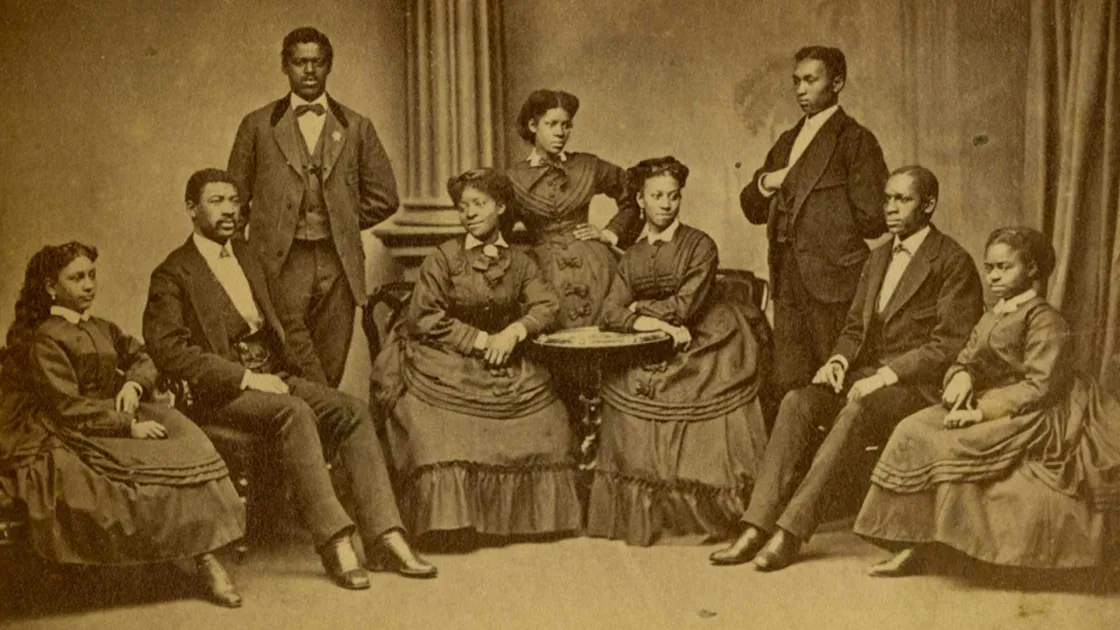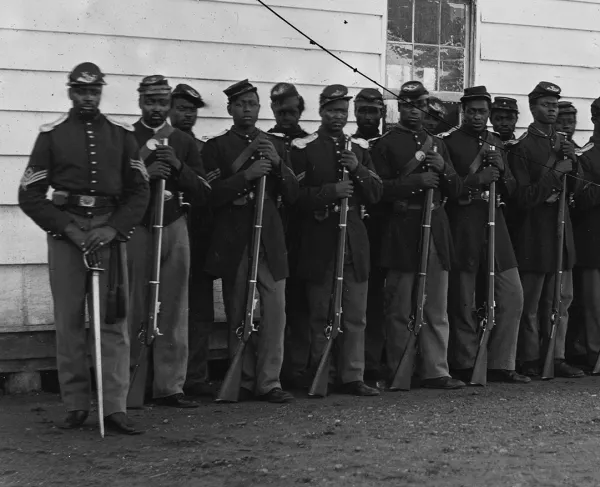Fisk Jubilee Singers
Tennessee
Nashville, TN 37208
United States
This heritage site is a part of the American Battlefield Trust's Road to Freedom: Tennessee Tour Guide app, which showcases sites integral to the Black experience during the Civil War era. Download the FREE app now.

The original Fisk Jubilee Singers® preserved the spirituals as an African American art form, helped save Fisk University, demonstrated Black excellence to worldwide audiences, and defined Nashville as Music City.
The newly free African Americans who came to Nashville during and after the Civil War thirsted for knowledge. By January 1866, federal and religious leaders changed a Union hospital into a school serving 900 students of all ages. In 1867, it became Fisk University aiming to provide “American education at its best” to all, regardless of race. When mounting debt threatened to close the school, Nine Black students guided by the school’s treasurer and music teacher left Nashville in October 1871, following traces of the Underground Railroad north and east on a fundraising concert tour.
Well-trained to share classical and popular music, the vocal group found growing and generous audiences only after they added songs that combined African rhythms and biblical themes. Now called spirituals, enslaved communities created this folk music and passed it down through families, churches, and friends. The group, led primarily by a teenaged Ella Sheppard, collected and arranged these songs — preserving well over a hundred by 1881.
Funds raised from their early tours enabled the purchase of land where Fisk University now stands. Subsequent tours took them to Europe, where they received wide acclaim and entertained royalty, while raising money to complete Jubilee Hall in 1876. Queen Victoria was so impressed she reportedly said they must be from “a city of music.”
By 1878, the group disbanded, having achieved fame, faced persistent discrimination, and sacrificed educational opportunities (most did not graduate from Fisk), their health, and their relationships to a demanding schedule. Reorganized and revived over the years, the Fisk Jubilee Singers® still represent the university and share haunting and hopeful spirituals with the world.




